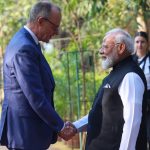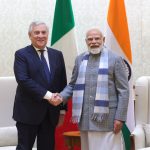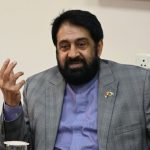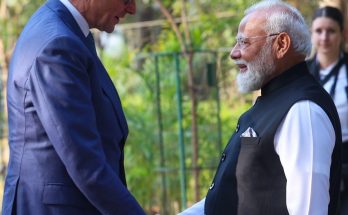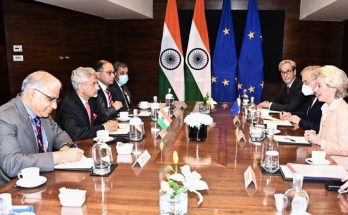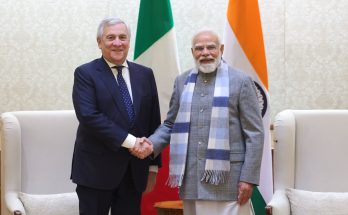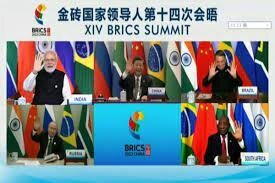
In remarks that should silence critics who doubt India’s commitment to BRICS in the wake of increasing focus on Quad, Prime Minister Narendra Modi underlined the role of the five-nation grouping in post-Covid global recovery and added that institutional reforms have increased the effectiveness of this organization.
“Over the years, we have made a number of institutional reforms in BRICS, which have increased the effectiveness of this organization. It is also a matter of happiness that the membership of our New Development Bank has also increased,” PM Modi said at the 14th BRICS summit hosted by President Xi Jinping virtually from Beijing on June 23.
“There are many areas where the lives of our citizens are getting directly benefitted from our mutual cooperation,” he said. The Indian leader highlighted establishment of vaccine R&D center, coordination among custom departments, establishment of shared satellite constellation and mutual recognition of pharma products as some of key achievements of BRICS. “Such practical steps make BRICS a unique international organization whose focus is not just limited to dialogue,” he said.
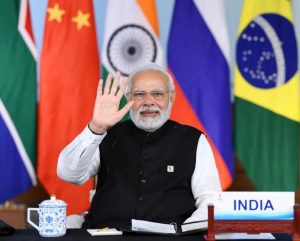
The BRICS leaders managed to strike a balanced position on the contentious issue of the Russian invasion of Ukraine by supporting talks and at the dame time voicing concerns over the humanitarian situation in and around Ukraine.
“We support talks between Russia and Ukraine. We have also discussed our concerns over the humanitarian situation in and around Ukraine and expressed our support to efforts of the UN Secretary-General, UN Agencies and ICRC to provide humanitarian assistance in accordance with the basic principles of humanity, neutrality and impartiality,” the BRICS declaration said.
Russian President Vladimir Putin, a staunch critic of the West, blamed “selfish actions” by western countries for the economic crisis in his country arising due to sanctions.
Chinese President Xi Jinping targeted “Cold war mentality” and oppose what he called the US and EU’s “unilateral sanctions”. He asked BRICS countries to support each other and operationalise Global Security Initiative proposed by China. He emphasised the need to improve global science and technology governance and expand BRICS cooperation on cross-border payment and credit rating.
The summit saw a convergence among the five emerging economies on the Ukraine issue. BRICS countries called for “Afghanistan authorities to achieve national reconciliation through dialogue and negotiation, and to establish a broad-based and inclusive and representative political structure.” The declaration reminded the new Taliban rulers of Afghanistan that Afghan territory must not be used to shelter terrorists or attack any other country.
Author Profile

- Manish Chand is Founder and Editor-in-Chief of India Writes Network (www.indiawrites.org) and India and World, a pioneering magazine focused on international affairs. He is CEO, Centre for Global India Insights, an India-based think tank focused on global affairs.
Latest entries
 India and the WorldJanuary 13, 2026India, Germany raise the bar for defence, economic ties
India and the WorldJanuary 13, 2026India, Germany raise the bar for defence, economic ties India and the WorldDecember 12, 2025India-Italy bonding: Tajani’s visit raises the bar for business, maritime ties
India and the WorldDecember 12, 2025India-Italy bonding: Tajani’s visit raises the bar for business, maritime ties In ConversationNovember 26, 2025G20 is a Force for global Good
In ConversationNovember 26, 2025G20 is a Force for global Good articlesNovember 26, 2025Rescuing G20 from North-South divide: Ubuntu Moment
articlesNovember 26, 2025Rescuing G20 from North-South divide: Ubuntu Moment

